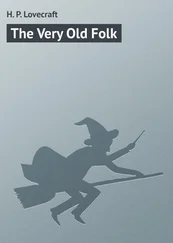“Unhhh,” Billy said, and he craned his neck to look at both, then moved his chair for a better look, and he stared.
“That guy looks like my father,” he said, indicating Malachi in The Conspiracy.
“Right. And a little like my father too,” I said.
“Yeah,” said Billy. “What the hell is it?”
“It’s Peter’s vision. Your father’s been important to him all his life. He’s painted him many times.”
“This is the first one I saw.”
“Not the last. He’s in that one too,” and I pointed to the Demons painting.
“Who’s that guy supposed to be? It ain’t really my father.”
“It’s your great-uncle, Malachi McIlhenny.”
“I heard of him. Wasn’t he nuts?”
“Totally, but there’s more to it.”
“Yeah,” Billy said, “when people go nuts they got a reason.”
“You never uttered a truer word,” I said.
I heard footsteps on the porch and went to see who was coming. But it was only the afternoon paper, stuck between the jamb and the doorknob by the thoughtful paperboy to keep it dry. It had been cloudy for an hour and now a fine drizzle was beginning. I was closing the door when I saw a taxi turning off Pearl Street onto Colonie, and I thought, Giselle, accurately. She paid the cabbie and slid out of the back seat with her arms full, offering me her knees in the drizzle, constantly smiling, moving with small steps back into my life. I held the door for her, and she kept going down the hallway to the kitchen.
“Don’t I even get a hello?”
“Yes,” she said. “Follow me.”
And so I did, as I always have, and in the hallway she gave me a serious kiss and went into the back parlor to deposit one of her bags next to the player piano. She said hello to Billy without introducing herself and delivered her gifts for the meal (goose-liver pâté, a wheel of Camembert, English tea biscuits, two bottles of Haut-Brion, and two pounds of Whitman’s chocolates for Peter) to Molly in the kitchen.
“That’s Giselle,” I said to Billy, and I handed him the afternoon paper. He nodded and looked at the front page.
“They got a story on the shootin’,” Billy said. “They picked up Johnny Rizzo at the railroad station, leavin’ town, and Morty’s in the hospital. He might lose a leg.”
“That’s a tough one.”
“Yeah, but he loses a leg means the card game’s off. That son of a bitch’ll do anything not to pay me what he owes.”
“If they have to reschedule the game let me know. I’ll go with you anytime.”
“Nah, forget that. I’ll do it on my own.”
“All right, whatever you say.”
Giselle came in from the kitchen. “You’re Billy,” she said. “I’ve seen your picture.”
Billy stood up and shook her hand.
“I’m Billy,” he said, “and you’re pregnant.”
“My news precedes me,” she said, and with both hands she arced a bulbous abdomen onto herself. I then took my first look at her body, which was sheathed in a smart white linen dress that gave no indication of the two months of new life that functioned beneath it.
“A kid in the family,” said Billy. “That’s something new.”
Giselle had pulled her hair back tight in a ponytail, more severe than I’d ever seen her look. Was she already shedding glamour to befit her incipient motherhood? Throttling down her sex appeal for the sake of the family gathering? I heard the closing of a car door and then saw through the parlor window Peg getting out of a Cadillac convertible (its top up), abetted by a soulful caress of her elbow by Roger, the lawyer, that bespoke something beyond a lawyer-client relationship. I noted Peg’s coy smile, the retreat of her elbow, and their mounting of the stairs together (Peg carrying a fat bag of fresh snowflake rolls and a strawberry pie from the Federal Bakery), and this instant gave me more insight into the femininity of my cousin Margaret than I had ever had heretofore. I could see the appeal she held for Roger, a man twenty-two years her junior, who was to be married in three weeks. But impending marriage was not an obstruction to fun for Roger, who en route to this luncheon meeting offered Peg an afternoon of pleasure at a hotel of her choice, a movie ( Indiscreet was playing at the Strand), or an evening at an out-of-town summer theater ( Silk Stockings was playing at Sacandaga, and he told Peg she had elegant legs, and she does).
Peg told me all this when I taunted her with what I had seen as they arrived, adding that she had declined the offers, even though she thought Roger was “a doll.” And I believe her, cannot think of her as an adulterous woman, though of course what do I know? Also, I marveled at how quickly she offered up all this information to me, such frankness unheard of in this family, wherein affectionate elbow-stroking, had it been observed by Kathryn or Sarah, would have led to unexplained excommunication of both pairs of elbows from these sanctified rooms, not to mention the cancellation of lunch.
Peter came down the front stairs to the parlor and sat in his leather chair, which was still where I’d seen it in 1934, though hardly in the same condition. He had tried to transfigure his appearance, banish the scraggle by wetting and combing his hair, perhaps even trimming his mustache; and, despite the heat of the day, wore an open-collared white shirt with a tan paisley neckerchief, brown corduroy sport coat with leather elbows, tan pants, and paint-speckled dress shoes.
“Who’s here?” he said as he was easing himself into the chair, favoring his bad hip.
“Everybody,” I said, and we moved toward him and took all the available seats in the room. I brought a dining-room chair for Molly, who came in wearing her apron, drying her hands on a kitchen towel. Peter surveyed the assemblage with a constant smile, then fixed on Giselle.
“And how is Mother Gigi?” he asked. I had never heard anyone call Giselle Gigi before.
“She’s sick every morning,” Giselle said, “but otherwise fine.”
“Margaret, how’s the family?”
“About the same,” Peg said, “except for Danny. He called me at the office this morning to say he’s getting married.”
I looked at Giselle, who blinked at the news about Quinn. I wonder why? She did not look at me.
“A Cuban girl,” Peg said.
“New blood in the family,” Peter said.
“Is she a Catholic?” Molly asked.
“Who gives a royal goddamn?” Peter said.
“All I know,” Peg said, “is that he’s very much in love.”
“I should hope so,” said Peter. “Roger, I’m glad you could arrange your schedule to be here. And, Billy, it’s good to see you. It really is good to see you.”
“Yeah, well,” Billy said, and he worked up half a smile.
“Molly, you’re losing weight, but you look grand.”
“And so do you,” said Molly, “with your kerchief.”
“But you should take off that apron. A day of some formality requires the proper costume.” And as Molly untied her apron he looked at me. “And you should have a tie on for your guests, Orson.”
“I’ll dress for lunch,” I said.
I was wearing my usual shirtsleeves, slacks, and loafers; and who needs more in this weather? The answer is Peter, who was demanding proper tribute be paid to the patriarchal rite he was now conducting, and which I had organized. When it became clear that he would be getting a great deal of money for his Malachi Suite , he said to me offhandedly, “I don’t want to keep all that damn money. I won’t live long enough to make use of it. And when I go they’ll probably take half of it in taxes.”
“What’s your alternative to being well off?”
“Give it away.”
“To needy painters?”
Читать дальше












